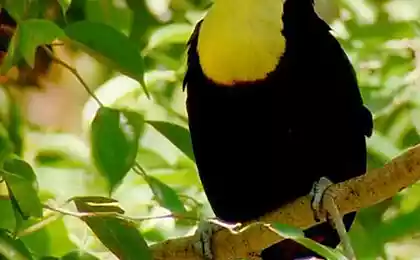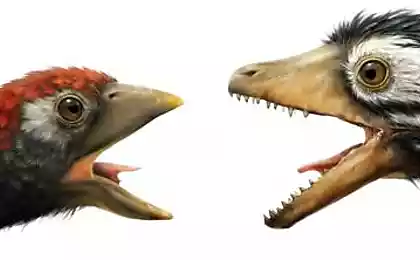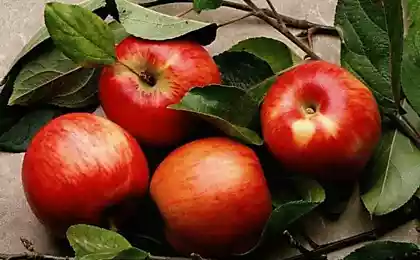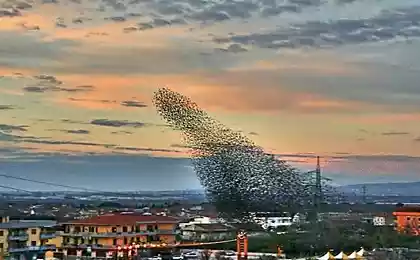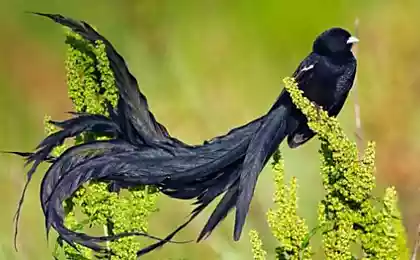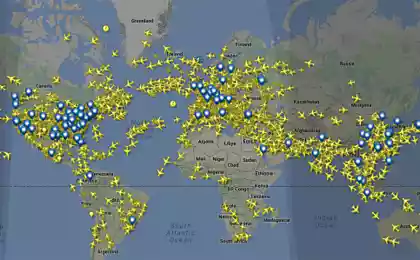484
The plankton will help stop global warming
In accordance with recently published studies, researchers from the University of California, Davis, the top predators of the southern ocean, seabirds are associated with the health of the ocean ecosystem and to global warming due to the relationships with phytoplankton.

When phytoplankton are eaten by krill, it releases a chemical signal which causes the birds feeding on these crustaceans. At the same time, this chemical signal — dimethyl sulfide, or DMS — forms sulfur compounds in the atmosphere that promote cloud formation and help cool the planet. According to Gabriel Nevitt, Professor of neurobiology and physiology at the University of California at Davis, this suggests that marine predators play an important role in climate regulation, although they are mostly excluded from climate models.

Studying DMS as a signal molecule proves that the ecological systems themselves can affect the climate.Professor Nevitt has studied the sense of smell of ocean birds for 25 years. He was the first who proved that marine predators use chemicals for foraging and navigation over the featureless surface of the ocean. DMS is an important signal for petrels and albatrosses, this idea can be extended to various species of penguins, seals, sharks, sea turtles, fish and possibly baleen whales.
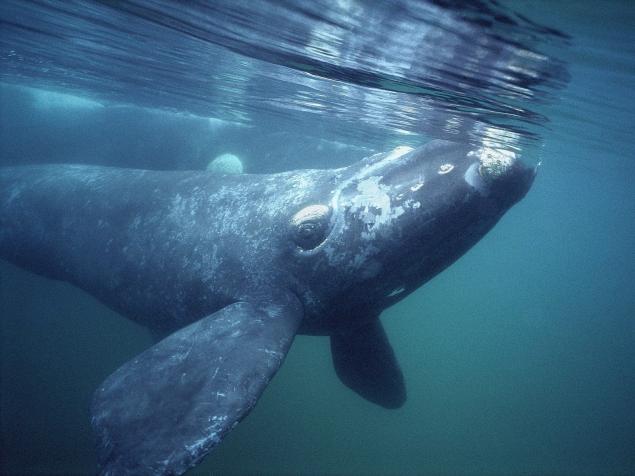
Phytoplankton -the plant in the open ocean, which absorbs carbon dioxide and sunlight to grow. When plankton dies, it releases an enzyme that generates DMS. The role of DMS in regulating climate was proposed by Robert Karlsenom in the 1980s. According to a hypothesis, warming oceans lead to growth of green phytoplankton, which in turn will release the precursor to DMS. Increase the level of DMS causes clouds, clouds in turn reflect sunlight, helping to cool the planet. It's negative feedback temperature control of the planet. The scientists found that species that respond to DMS, the vast majority of fed on krill, which graze on the phytoplankton.
On earth, there are several known examples of plants that respond to insect attack so that they produce chemicals to attract predators that eat these insects. Scientists have proposed that the same happens in the ocean: when phytoplankton are exposed to attack by krill, the DMS is released to attract predators that feed on krill.
Research suggests that by linking predatory birds and phytoplankton — the top and bottom levels of the food chain — DMS plays an important role in the ocean ecosystem, which affects climate, as well as a role in the generation of clouds. The study of how seabirds use odor signals, shows us the mechanism by which the birds themselves contribute to climate regulation. At the same time, the number of these birds are declining, with almost half the species are endangered or on the verge of extinction. In discovered links between top predators and the base of the food chain of the ocean means that the decline in seabirds could have a significant impact on ecosytem.
Source: /users/1077

When phytoplankton are eaten by krill, it releases a chemical signal which causes the birds feeding on these crustaceans. At the same time, this chemical signal — dimethyl sulfide, or DMS — forms sulfur compounds in the atmosphere that promote cloud formation and help cool the planet. According to Gabriel Nevitt, Professor of neurobiology and physiology at the University of California at Davis, this suggests that marine predators play an important role in climate regulation, although they are mostly excluded from climate models.

Studying DMS as a signal molecule proves that the ecological systems themselves can affect the climate.Professor Nevitt has studied the sense of smell of ocean birds for 25 years. He was the first who proved that marine predators use chemicals for foraging and navigation over the featureless surface of the ocean. DMS is an important signal for petrels and albatrosses, this idea can be extended to various species of penguins, seals, sharks, sea turtles, fish and possibly baleen whales.

Phytoplankton -the plant in the open ocean, which absorbs carbon dioxide and sunlight to grow. When plankton dies, it releases an enzyme that generates DMS. The role of DMS in regulating climate was proposed by Robert Karlsenom in the 1980s. According to a hypothesis, warming oceans lead to growth of green phytoplankton, which in turn will release the precursor to DMS. Increase the level of DMS causes clouds, clouds in turn reflect sunlight, helping to cool the planet. It's negative feedback temperature control of the planet. The scientists found that species that respond to DMS, the vast majority of fed on krill, which graze on the phytoplankton.
On earth, there are several known examples of plants that respond to insect attack so that they produce chemicals to attract predators that eat these insects. Scientists have proposed that the same happens in the ocean: when phytoplankton are exposed to attack by krill, the DMS is released to attract predators that feed on krill.
Research suggests that by linking predatory birds and phytoplankton — the top and bottom levels of the food chain — DMS plays an important role in the ocean ecosystem, which affects climate, as well as a role in the generation of clouds. The study of how seabirds use odor signals, shows us the mechanism by which the birds themselves contribute to climate regulation. At the same time, the number of these birds are declining, with almost half the species are endangered or on the verge of extinction. In discovered links between top predators and the base of the food chain of the ocean means that the decline in seabirds could have a significant impact on ecosytem.
Source: /users/1077


